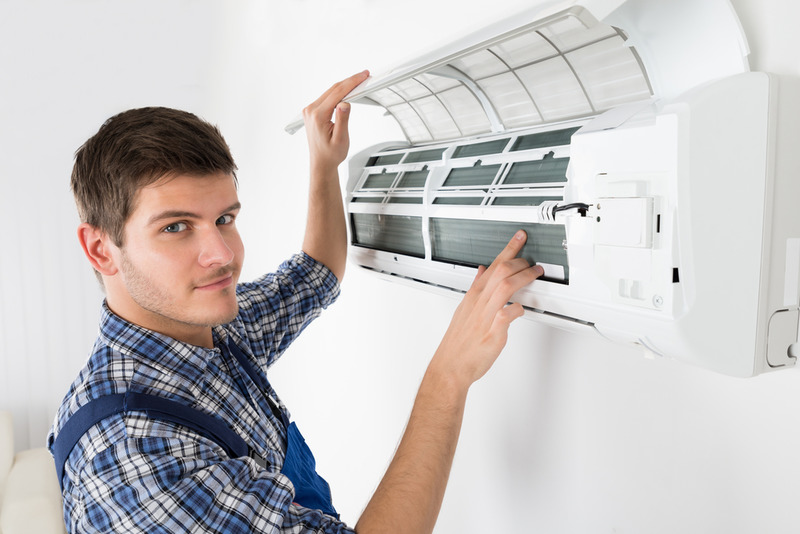Your HVAC system serves a crucial role in maintaining comfort inside your house in the varied seasons. It not only controls heat but also influences indoor air quality and power efficiency. But, like any major home equipment, your HVAC system has a lifespan and may need an upgrade after a long time of service. Noticing the signs that your system is having issues can save you from unexpected malfunctions and higher energy bills in the future.
If you find yourself regularly modifying the thermostat, experiencing unsteady temperatures, or encountering increased energy expenses, it could be time to evaluate your HVAC system. In this article, we will examine the top signs that indicate your HVAC system could need an upgrade. By recognizing these alert signals, you can make educated decisions about your heating and cooling systems and consider solutions that enhance both comfort and efficiency in your house.
Comprehending Heating, Ventilation, and Air Conditioning Systems
Heating, ventilation, and air conditioning stands for climate control, ventilation, and air conditioning. These setups are vital for ensuring comfortable interior climate and air purity in residences and buildings. The main function of an HVAC system is to regulate heat, ensuring that areas are cozy during winter months and chilly in the summer. Additionally, More Bonuses play a critical role in purifying and circulating air, which helps to a wholesome indoor environment.
The way your heating and cooling system works involves multiple components, including furnaces, cooling units, ductwork, and thermostats. The heating element heats the air, while the air conditioning unit cools it. Air flow occurs through the movement of air indoors and outdoors, ensuring clean air access while expelling stale air. Comprehending these components helps residents identify when their units may require attention or upgrades.
Frequent HVAC problems can arise over time, leading to decreased efficiency and increased utility bills. Problems such as clogged filters, worn-out parts, or duct leaks can hinder system performance. Consistent maintenance is crucial for prolonging the life of your HVAC system and making sure it operates at optimal performance. By identifying signs of wear and tear early on, property owners can make informed decisions about repairs or required upgrades.
Frequent HVAC Issues and Solutions
One of the most common problems homeowners face is inadequate heating or cooling. This issue often occurs from clogged filters, blocked ducts, or faulty thermostats. AC repair , including replacing air filters and ensuring proper airflow, can alleviate these issues. If the issue persists, it may be wise to seek the advice of a professional to identify potential issues with the HVAC system's parts.

Another frequent issue is strange noises coming from the HVAC unit, such as banging, scraping, or squealing sounds. These noises can indicate loose or broken parts, worn bearings, or even foreign objects in the blower. Homeowners should address these sounds promptly, as they can lead to more severe damage if left unaddressed. Scheduling regular maintenance can help detect and fix these problems before they worsen.
Finally, increased energy bills often signal poor performance in an HVAC system. These issues can stem from outdated units, poor insulation, or incorrect thermostat settings. Homeowners can enhance energy efficiency by insulating ducts, replacing to Energy Star-rated equipment, and using intelligent thermostats to better manage heating and cooling schedules. Evaluating and tackling these factors can lead to significant savings and increased comfort.
Deciding on and Managing Your HVAC System
When deciding on an HVAC system for your home, it is crucial to take into account factors such as the dimensions of your space, local weather, and energy efficiency ratings. Carrying out a load calculation helps identify the correct size of the unit, ensuring ideal performance without spending too much on energy costs. It is also beneficial to explore modern options like ductless mini-split systems or geothermal heating and cooling, which may offer improved efficiency and versatility compared to conventional systems. Looking into various brands and talking to HVAC professionals can also guide you towards a system that adequately fulfills your needs.
Once your HVAC system is set up, regular maintenance is essential for its longevity and efficiency. Seasonal tune-ups, which include cleaning filters, inspecting ductwork, and reviewing components, help prevent breakdowns and prolong the life of your system. Keeping an eye on your energy costs can also be a helpful indicator of your system's health; any sudden increase in costs can signal issues that need to be addressed promptly. Planning maintenance in the spring and the fall prepares your system for the difficulties of harsh weather, ensuring consistent performance year-round.
Adding in a smart thermostat can boost your HVAC system's efficiency even more effectively. These devices allow you to set temperature settings based on your routine, helping to reduce energy consumption while ensuring comfort. Additionally, incorporating excellent air filters can improve indoor air quality, lower allergens, and protect your system from dust and debris buildup. Overall, a thoughtful approach to choosing and maintaining your HVAC system will result in better performance, lower energy costs, and a more comfortable home environment.
